Contador: Without doubt I have won nine Grand Tours
Spaniard says 2010 Tour and 2011 Giro are his
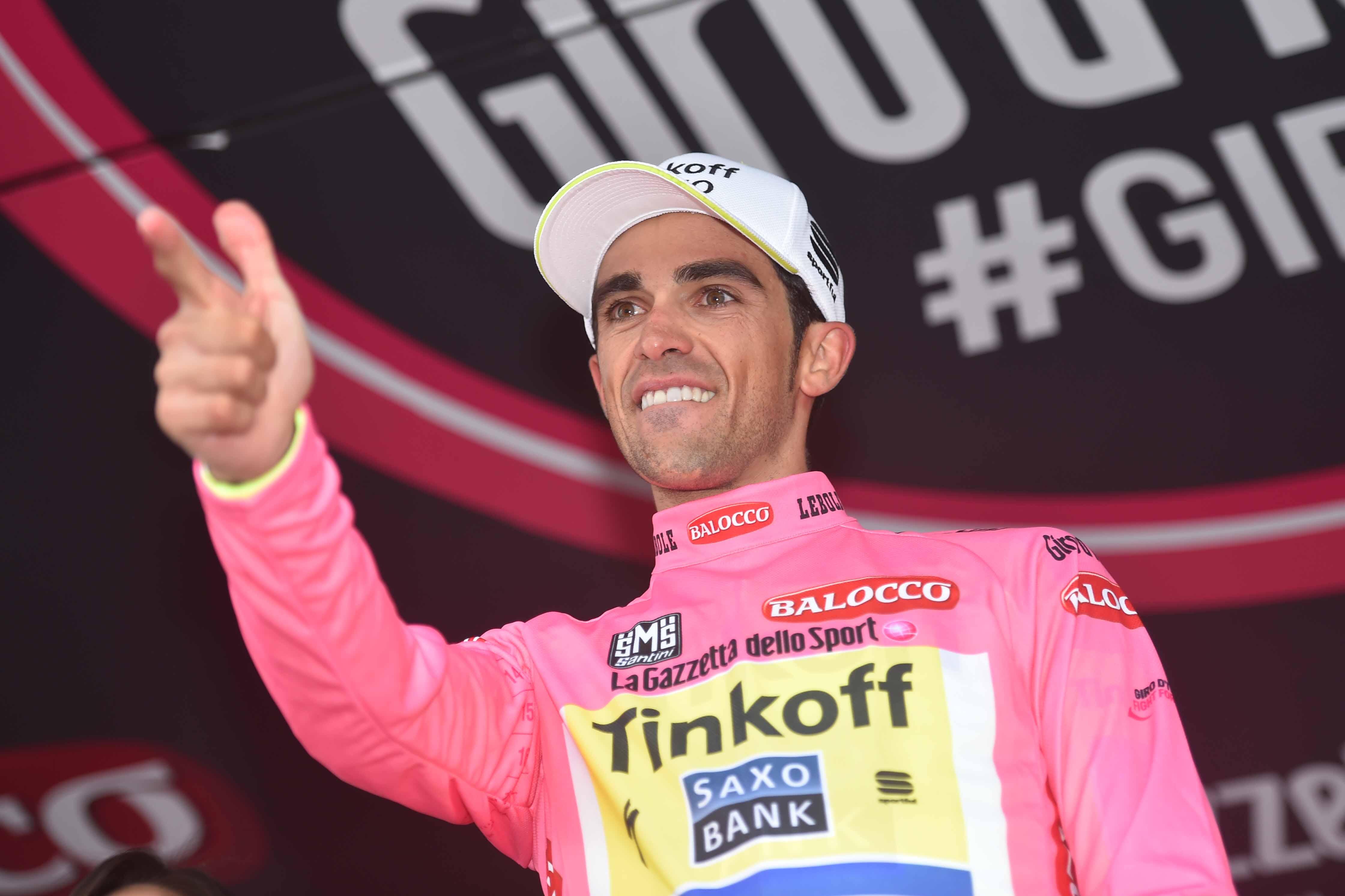
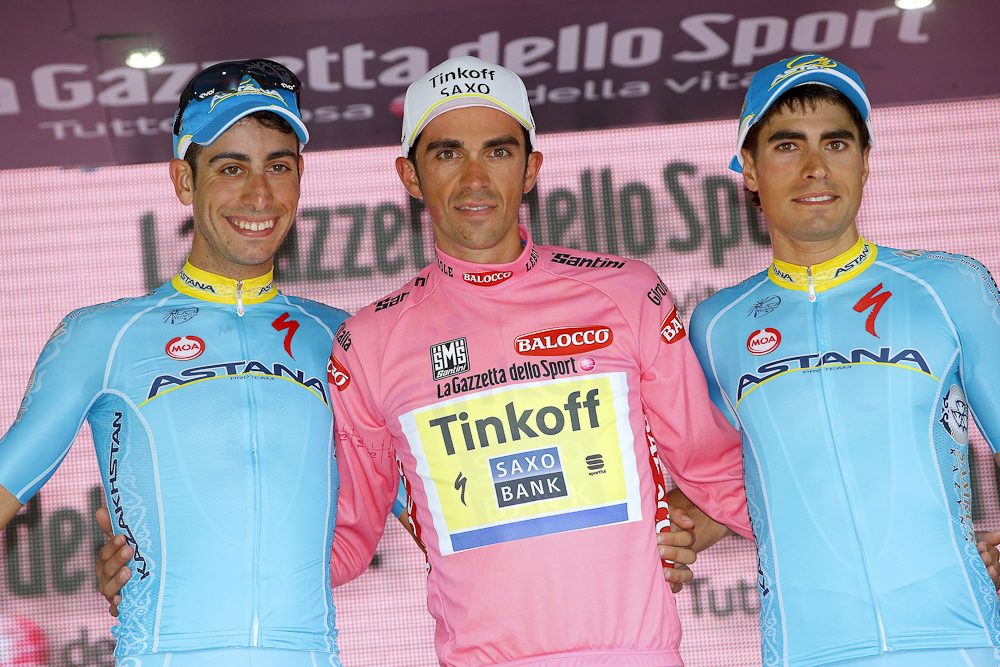
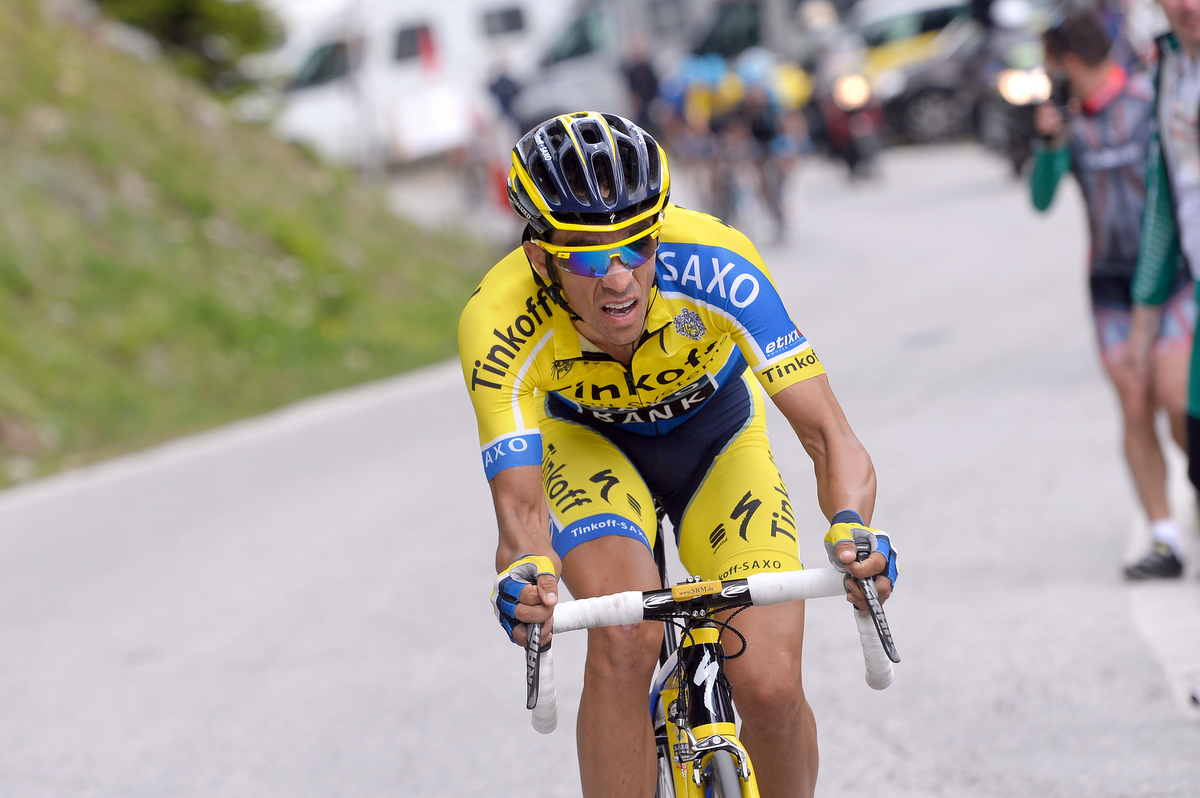
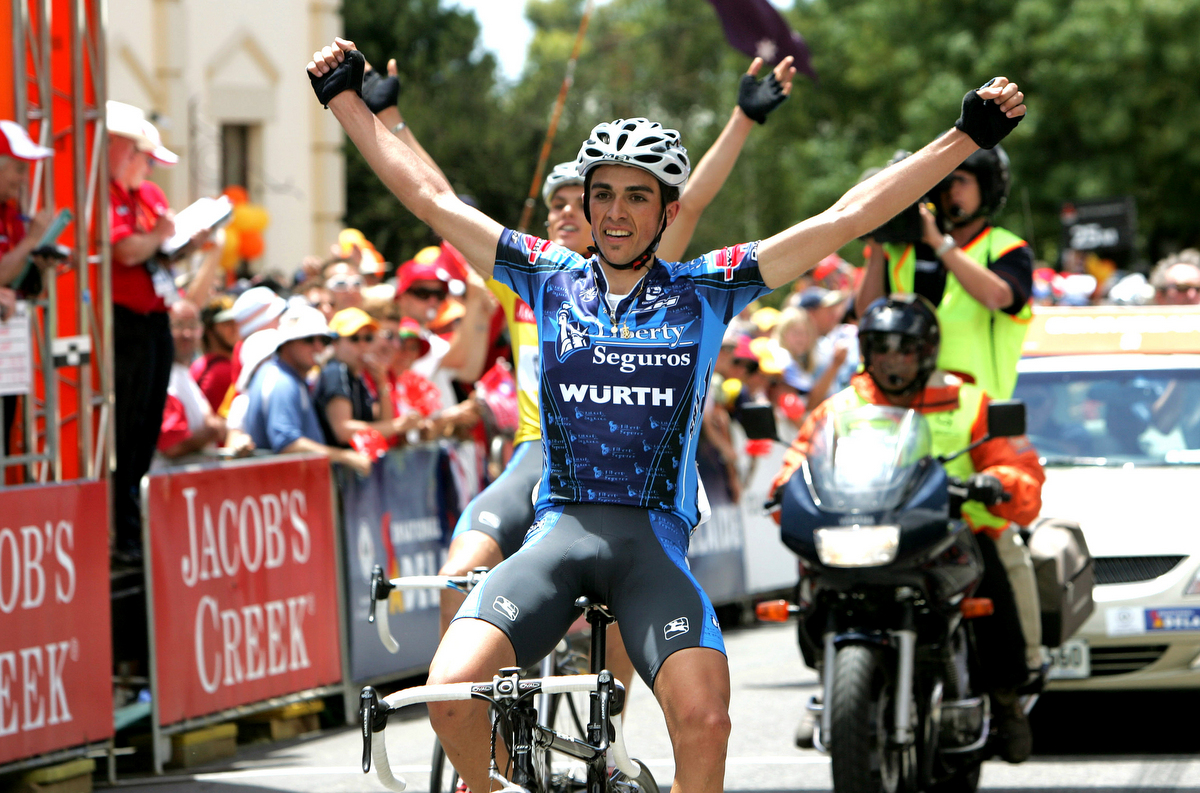
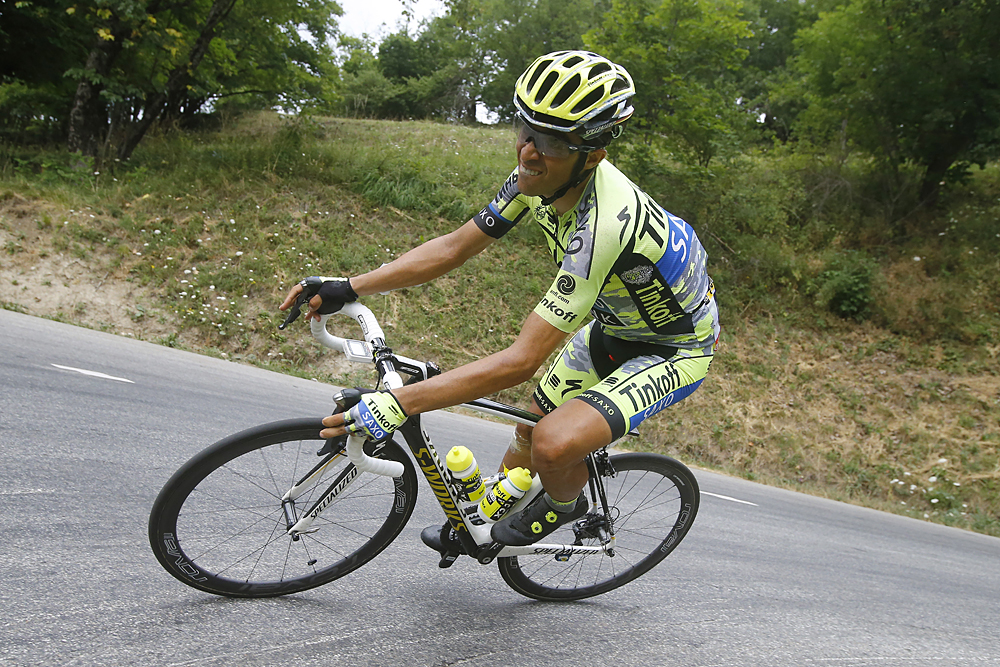
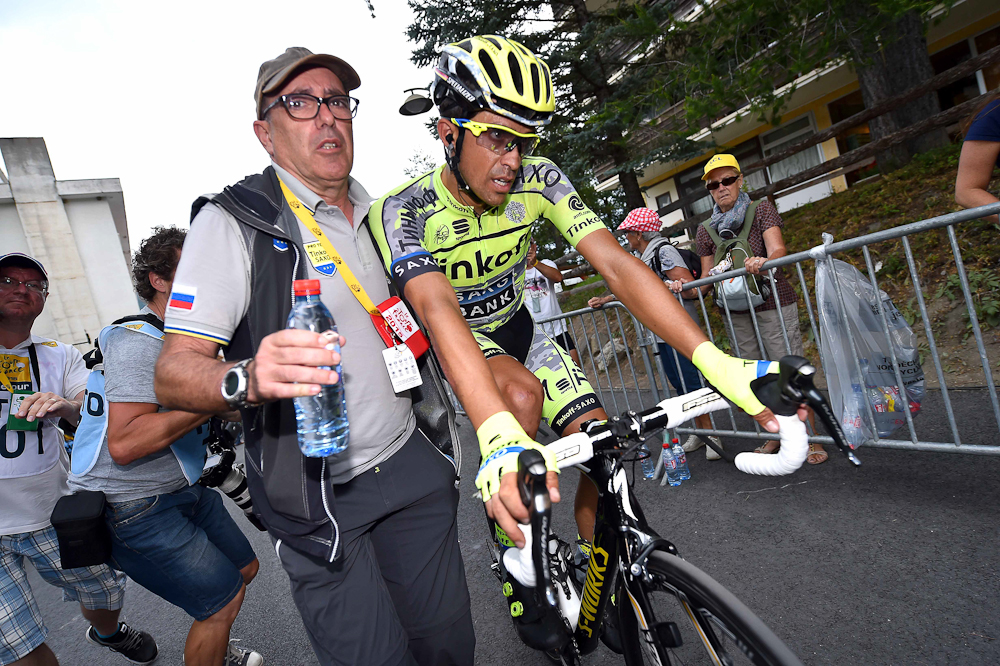
Alberto Contador has insisted he has won nine Grand Tours during his career, despite losing two of them when he was disqualified after testing positive for Clenbuterol in 2010.
During a long interview with the Guardian newspaper in his hometown of Pinto in Spain, where he also talked about the cerebral cavernoma that almost ended his career in 2004, his hopes for his final season in 2016 and Chris Froome’s decision to publish his physiological data, Contador pointed to a yellow jersey from the 2010 Tour de France and a pink jersey from the 2011 Giro d’Italia.
“Without doubt I’ve won nine. Look at the jersey of the Tour 2010 and the Giro 2011,” Contador said, referring to the framed jerseys hung on the wall. “I won both those races in a clean and honest way. Only with work and sacrifice. I put those up as an example.”
Contador lost his 2010 Tour de France victory after testing positive for Clenbuterol and lost his 2011 Giro d’Italia victory because it was included in his ban that was finally confirmed by the Court of Arbitration for Sport in February 2012. He claimed he tested positive due to contaminated meat but was unable to prove that the Spanish meat he ate was the real cause.
Despite his ban and his time competing against Lance Armstrong, Contador believes professional cycling is much cleaner now than when he turned professional in 2004 with ONCE. He will again ride for Tinkoff-Saxo in 2016.
“With the system of anti-doping control we now have and the quantity of those tests for the top riders it is impossible to cheat. If you do it’s like a suicide. I’ve no doubt this is why it’s clean at the very highest level,” he claimed.
2015 was tough physically and psychologically
Get The Leadout Newsletter
The latest race content, interviews, features, reviews and expert buying guides, direct to your inbox!
Contador has not raced since finishing fifth in this year’s Tour de France. He won the Giro d’Italia despite dislocating should shoulder early in the race but his injury, and his battle with Astana duo Fabio Aru and Mikel Landa, left him tired come July.
“It’s been a very tough season physically and psychologically,” he said. “And the toughest year of my career because my objective was to win the Giro d’Italia and the Tour de France. I won the Giro, but not the Tour. Sport is now much more scientific but you still don’t know how tough each Giro or Tour will be until you race them. But now I can recover and be a normal person again – not eating only salad and vegetables.”
He is about to step up his training for 2016, which is almost certainly going to be his last season at WorldTour level, unless he misses the Tour de France due to illness or injury. However, he will be 33 on December sixth and insists he has no regrets, especially considering his career almost ended in 2004 when he suffered a cerebral cavernoma. He is now a spokesman against the risk of strokes and recently revealed his 2016 race programme while speaking in Madrid about the problem.
“I am not sad about ending,” he said. “Because I’m already proud. I’m proudest of how I overcame my illness in 2004. I gave lots of encouragement to people who have had a stroke or a cavernoma. That matters more than anything in the end.”
Contador was only 21 when he collapsed during the Vuelta a Asturias. He underwent surgery – leaving a scar on his head that is still visible today, but returned to racing and won a stage at the 2005 Tour Down Under.
“I was lucky it happened in a race because if I’d been training I would be dead,” he explained.
“After five days I suffered another crisis at five in the morning. My parents heard some blows in my room and they saw me convulsing. It took a long time for the ambulance to come and I was having convulsions all the time. In hospital I was unconscious for three hours. The doctors told my family I might be brain damaged but I was lucky. I was OK, and they found the cavernoma. They had suspected a tumour but the doctor said I still needed a very risky operation. They gave me lots of documents but I didn’t read them. I just signed the agreement.”
His problem gave him his motto for life and he claims his accident and recovery shaped his character and the way he looks at life even today.
“When I woke up my mother said ‘querer es poder’. In English it means ‘ to want is to be able' or 'where there is a will there is a way’. It became my motto from that moment,” he said.
“I always remember the day – 27 November 2004. It was very cold but I felt full of life. I had to go training with Franc (his brother Francisco -ed) and a friend because the doctor would not allow me to go alone. No one knew what would happen but I was very happy. It’s even more incredible that six weeks later I won a stage in the Tour Down Under. That’s why I believe my greatest victory was in Australia.”
Contador could race for his Contador Foundation team managed by his brother Fran in 2017 but has no plans to race for years to come, preferring to go out with a final victory in July.
“I want to finish my career at the top level – if possible winning the Tour. I think 2016 will be my last year – but if I have an accident or something stops me being at my best level at the Tour then maybe I’ll continue another year. It would be perfect to win the Tour, do the Olympics and end happily,” he explained.
“If you look at the 2016 Tour route the flat time trial will be better for Froome but the other time-trial will be a climbing one and that’s better for me. This year Froome was at a higher level than anyone – but maybe [Nairo] Quintana will come to this level. His evolution is good and so, as my main rivals, I’d put Quintana and Froome at the same level for next year.”
Team Sky’s different way of doing things
Contador and Froome have been fierce rivals in recent years. They are very different and ride for very different teams. The Spaniard felt sorry that Froome became a target for criticism from fans along the road side during this year’s Tour de France.
“Of course I feel some sympathy for Froome. During the Tour you put in an incredible effort. And to lead the race takes even more. I still think cycling is a beautiful sport but some people just want to disturb the race. It’s sad,” he said.
Yet Contador is also critical of the way Froome and Team Sky do things, suggesting that Froome’s decision to release physiological test data will not make him more popular or more credible.
“Some people like Team Sky and Froome. Others dislike him. Maybe his system of work is hermetic,” he said, pointing out their liking to challenge many of cycling’s traditions.
“Maybe (Team Sky) work in different ways to other teams and maybe people dislike this way of working. But we all have that. Every rider and every team has critics and fans. It (the data) won’t give too much to resolve this problem. Maybe it’s more important that people can see you being more open in the way you work. I think that’s more useful than just giving out lots of data.”